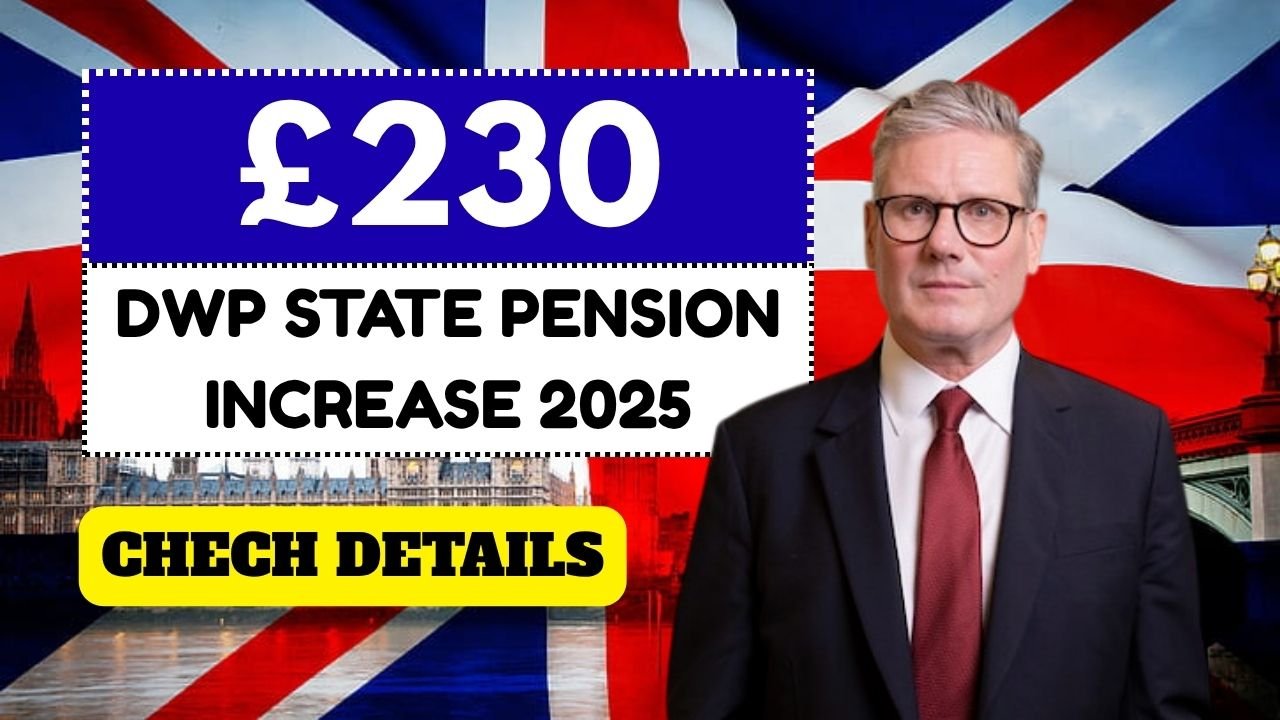The £230 State Pension boost will take effect in April 2025, elevating the whole weekly payment under the UK’s “triple lock” assure. The Department for Work and Pensions (DWP) showed that the uprating is designed to guard pensioners’ incomes towards rising living costs.
What Is the “£230 Boost” About?
In recent announcements, the UK’s State Pension has been increased for the tax year 2025/26. The new full weekly rate for the New State Pension is £230.25. Some media reports or community discussions frame this increase as a “boost” (e.g., rounding it to £230) to reflect the new rate. While it’s not necessarily a one-time “£230 payment,” the increase means pensioners who qualify for the full amount will receive more per week starting in 2025.
What Is Changing in 2025
From 6 April 2025, the entire new State Pension will upward thrust from £221.20 to £230.25 per week. The primary State Pension, for folks that reached pension age before April 2016, will boom to £176.45 in line with week.
The increase follows the triple lock rule, under which pensions develop in keeping with whichever is maximum: inflation, average income, or 2.5 according to cent. The DWP showed the upward push after average salary increase in mid-2024 outpaced inflation.
Who Is Eligible

Qualifying Years Requirement
According to government steerage, pensioners want at the least 35 qualifying years of National Insurance (NI) contributions to get hold of the entire new State Pension. A minimum of 10 years is needed to acquire any payment in any respect.
Periods of “contracting out”—when people paid into certain occupational or personal schemes in place of the extra State Pension—might also reduce the very last quantity. In such instances, individuals can also receive a smaller State Pension however probably better personal pension benefits.
Voluntary Contributions
The government allows sure gaps in NI facts to be filled via voluntary contributions. This option is to be had for folks that are not but of pension age but need to stable a higher pension entitlement. According to Age UK, now not all gaps can be filled, and cut-off dates may also follow.
Why the Increase Matters
Pensioners have faced sharp cost-of-living pressures over the past three years. Food and electricity bills surged after the pandemic and for the duration of the warfare in Ukraine. Although inflation slowed in 2024, family budgets continue to be tight.
“The triple lock is crucial to making sure pensioners’ incomes keep tempo with rising costs,” stated Tom Selby, director of public coverage at AJ Bell, in a declaration pronounced by the BBC. “Without it, many older people might threat falling at the back of in real terms.”
However, some economists have puzzled the coverage’s long-term affordability. The Institute for Fiscal Studies (IFS) has previously warned that the triple lock could push State Pension spending to unsustainable stages by the 2040s.

What Pensioners should do now
To make sure you benefit from the confirmed increase (and to guard against missing any speculative extra payments if they arise), here are practical steps:
- Check your National Insurance record
Review your NI years to see if you’re short of the 35 years required for full new State Pension. - See if you can fill gaps
In some cases, it’s possible to make voluntary contributions for previous years—but rules and deadlines matter. - Use the State Pension forecast tool
On the GOV.UK site, you can see your estimated pension amount based on your record. - Monitor DWP / Government announcements
Watch for any official statements or legislation introducing special “boosts” or payments. - Claim any linked benefits you might be eligible for
For instance, Pension Credit (if your income is below thresholds) may top up your income and unlock other benefits. - Beware of misinformation or scams
Rumors of extra payments often circulate. Always check against official DWP or GOV.UK sources before acting on any claim.
Conclusion
While there may be no verified assertion of a “£230 DWP State Pension boost” in 2025 as a separate special payment, there is a confirmed 4.1% increase to State Pension costs effective April 2025, which ends up in a complete new weekly amount of £230.25. This applies to folks that meet eligibility standards (which includes sufficient National Insurance years and having reached State Pension age).
Pensioners ought to cognizance on verifying their contributions, monitoring reliable announcements, and exploring related benefits (like Pension Credit) to maximise their profits. Rumors of speculative boosts can be misleading—stick with depended on government resources to recognize what you’re truly entitled to.
FAQ’s
How a few years of contributions do I want for the total pension?
You usually want 35 qualifying years of NI contributions for the whole new State Pension. At least 10 years are required for any payment.
Can I defer my State Pension?
Yes. Deferring will increase your weekly payment. According to DWP, for every nine weeks you defer, your pension increases via approximately 1 per cent.
What approximately Pension Credit?
If your income is below a certain threshold, you could qualify for Pension Credit, which tops up weekly earnings. This is break away the State Pension however facilitates aid low-income pensioners.

